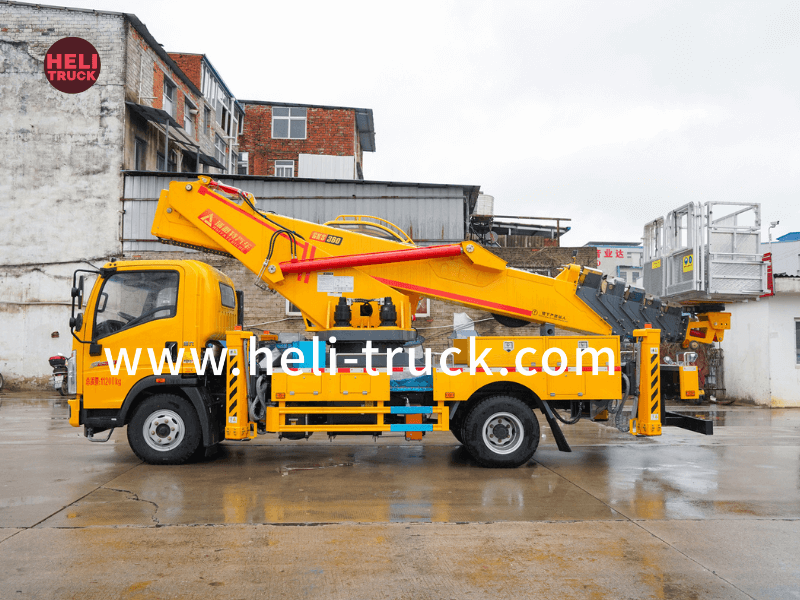Introduction
Garbage compactor trucks play a crucial role in modern waste management systems, particularly for the collection and disposal of bulk waste. These specialized vehicles are designed to efficiently compact large volumes of waste materials, making them easier to transport and dispose of in landfills or recycling facilities. In this comprehensive guide, we will explore the various types of garbage compactor trucks used for bulk waste management, their key features and benefits, as well as best practices for their operation and maintenance.

Types of Garbage Compactor Trucks
There are several types of garbage compactor trucks specifically designed for handling bulk waste. The most common types include:
1. Rear Loader Compactor Trucks: Rear loader compactor trucks are equipped with a hydraulic compactor mechanism at the rear of the vehicle. Waste collectors load the bulk waste into the hopper at the back of the truck, which is then compacted using a hydraulic ram. Once the waste is compacted, the rear loader compactor truck can transport the waste to a disposal site or recycling facility.
2. Front Loader Compactor Trucks: Front loader compactor trucks are designed with a hydraulic compactor mechanism at the front of the vehicle. These trucks are commonly used for collecting large volumes of commercial and industrial waste from dumpsters or containers. The waste is loaded into the compactor at the front of the truck, compacted, and then transported for disposal.
3. Side Loader Compactor Trucks: Side loader compactor trucks feature a hydraulic compactor mechanism on the side of the vehicle. These trucks are ideal for collecting waste from residential areas with narrow streets or limited access. The waste is loaded into the compactor on the side of the truck, compacted, and then transported for disposal.
Key Features of Garbage Compactor Trucks
Garbage compactor trucks are equipped with a range of features that enhance their efficiency and effectiveness in handling bulk waste. Some of the key features of these specialized vehicles include:
1. Hydraulic Compactor Mechanism: The hydraulic compactor mechanism is the heart of a garbage compactor truck. It consists of a powerful hydraulic ram that compresses the waste materials, reducing their volume and making them easier to transport.
2. Compaction Ratio: Garbage compactor trucks are designed to achieve a high compaction ratio, typically ranging from 3:1 to 6:1 or higher. This means that the waste is compressed to a fraction of its original volume, maximizing the capacity of the truck and reducing the number of trips required for disposal.
3. Sealed Body: Garbage compactor trucks are equipped with sealed bodies to prevent leakage and odors during transportation. The sealed body also helps to contain any liquid waste or hazardous materials, ensuring safe handling and disposal.
4. Automatic Loading and Compaction: Many modern garbage compactor trucks are equipped with automatic loading and compaction systems, reducing the manual labor required by waste collectors. These systems streamline the waste collection process and improve efficiency.
Benefits of Garbage Compactor Trucks
Garbage compactor trucks offer a range of benefits for bulk waste management, both for waste collection agencies and the environment. Some of the key benefits of using garbage compactor trucks include:
1. Increased Efficiency: Garbage compactor trucks can handle large volumes of waste in a single trip, reducing the number of collection runs required. This improves the efficiency of waste collection operations and saves time and resources.
2. Reduced Labor Costs: The use of garbage compactor trucks with automatic loading and compaction systems can help reduce the labor costs associated with waste collection. These vehicles require fewer workers to operate, leading to cost savings for waste management agencies.
3. Improved Hygiene and Safety: Garbage compactor trucks help maintain a clean and hygienic environment by containing waste materials within sealed bodies. This reduces the risk of littering, odors, and vermin infestations, enhancing public health and safety.
4. Environmental Benefits: By reducing the volume of waste through compaction, garbage compactor trucks help minimize the amount of landfill space required for disposal. This contributes to the conservation of natural resources and reduces the environmental impact of waste management practices.
Best Practices for Operating Garbage Compactor Trucks
To ensure the optimal performance and longevity of garbage compactor trucks, it is essential to follow best practices for their operation and maintenance. Some key best practices include:
1. Regular Maintenance: Garbage compactor trucks should undergo regular maintenance checks to ensure that all components are in good working condition. This includes inspecting the hydraulic system, compactor mechanism, and other critical parts of the vehicle.
2. Proper Loading Procedures: Waste collectors should follow proper loading procedures when using garbage compactor trucks to prevent overloading and ensure efficient compaction. It is important to distribute the waste evenly and avoid compacting materials that could damage the compactor.
3. Safe Driving Practices: Garbage compactor truck drivers should adhere to safe driving practices to prevent accidents and minimize wear and tear on the vehicle. This includes obeying speed limits, maintaining a safe following distance, and avoiding sudden stops and starts.
4. Waste Segregation: To optimize the compaction process and facilitate recycling, waste collectors should segregate different types of waste before loading them into the compactor truck. This helps ensure that recyclable materials are properly sorted and diverted from landfills.
Conclusion
Garbage compactor trucks are indispensable tools for managing bulk waste effectively and efficiently. These specialized vehicles offer a range of benefits, including increased efficiency, reduced labor costs, improved hygiene, and environmental sustainability. By understanding the different types of garbage compactor trucks, their key features, and best practices for operation and maintenance, waste management agencies can maximize the performance and longevity of these essential assets. Ultimately, https://www.heli-truck.com/road-sweeper-truck/ play a vital role in promoting sustainable waste management practices and creating cleaner, healthier communities for all.
